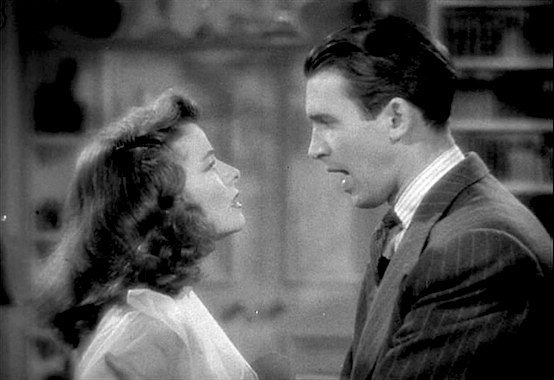Is the RomCom Dead Yet?

The romantic comedy film is either dying or dead, according to writers at The Atlantic and The Daily Beast. After watching “They Came Together,” a romantic comedy that parodies the genre, the Beast’s Andrew Romano argued that the romcom’s heydey has come to an end, due to shifts in audience targeting and gender preferences, as well as money problems and failed branding.
The Atlantic’s Megan Garber thinks that romcom plots no longer address the “way we live now,” in the age of online dating and delayed marriages. Christopher Orr made a similar argument last year: he said romcom plots are too outdated for today’s society—we no longer have taboos against premarital sex, nor do we have societal class divisions. The romantic conflicts of yesteryear are outdated in today’s society. However, Noah Millman wrote a rebuttal to Orr’s argument, reminding us that the romantic movies of 1940 weren’t popular or good “because there were arranged marriages (there were none) and it isn’t because women couldn’t get a divorce (all the female protagonists of the movies I cited are or get divorced) or couldn’t have sex … they work because they go internal, into character, to find both the conflict and its resolution, and they work because they don’t isolate the world of romantic love from the rest of the social universe.”
The troubles of the modern romcom may have monetary or societal threads, but it also has a problem with simplification and homogeneity that we can’t ignore. Most romantic comedies follow either a star-crossed lovers plot, or a “You Got Mail” storyline—the man and woman hate each other, or would never marry each other, but then slowly find out they’re perfect for each other (examples: “When Harry Met Sally,” “How to Lose a Guy in 10 Days,” “Sweet Home Alabama,” “The Switch,” “27 Dresses,” et cetera).
It’s true that both these types are rooted in classics—the star-crossed lovers are classic “Romeo and Juliet,” while the we-hate-each-other-no-wait-we-love-each-other is usually some reincarnation of Pride and Prejudice. But both these classics had greater complexity and depth than most of their modern manifestations. Both told stories of class and family, prejudice and tradition, virtue and vice. Their supporting characters were just as important as their leads—we couldn’t have Pride and Prejudice without Mr. Collins or Mrs. Bennet. Modern films don’t usually give us this rich, colorful tapestry.
As NPR’s Linda Holmes wrote in response to Orr last year, “The best [films] often have other elements, elements of real sadness, like the terrific and underappreciated Hugh Grant-Julia Roberts vehicle Notting Hill, for instance, which touches on not artificial obstacles, but on the way people in difficult circumstances sometimes hurt each other’s feelings and let each other down, not to mention supporting characters struggling with disability and fertility issues.” In contrast, says Holmes, “The [films] that take nothing seriously except dating … rarely work, and they’ve rarely ever worked, because love in life is usually mixed up with all kinds of other nasty stuff.” Millman agrees:
The romantic comedies that suck are the ones that adhere to a formula that none of the great romantic comedies of yore followed. They try to make both protagonists as “relatable” as possible by making them into everymen and everywomen – thereby depriving them of any interest. They focus overwhelmingly on the romance, treating the rest of the universe as so much “business” for low comedy, rather than exploring other themes that might reflect productively on the romance at the center. And they gin up artificial external obstacles instead of persuasive, character-driven internal ones.
Yet these are the films that we keep getting, with increasing regularity. They all tell familiar stories, with familiar conflicts—the plots may change somewhat, but they never surprise us. And romcoms aren’t the only films that suffer from this problem: modern cinema is teeming with stereotypical superhero stories, underdog sports stories, exploding/smashing action films, and their like. We can usually guess exactly how the plot will unfold in the first few minutes of the film.
People increasingly want different, surprising stories—and we’re starting to see some that are new, interesting, and complex. Many explore themes of friendship, rather than romance. Disney created an international sensation when they released “Frozen”—and perhaps one of its greatest surprises was that it was mainly about sisterhood, rather than the usual romance. “The Grand Budapest Hotel,” “Saving Mr. Banks,” “The Monuments Men,” “Gravity”: all were primarily stories of friendship, trust, camaraderie, sacrifice. In the realm of television, many people love BBC’s new “Sherlock” series, and the friendship between Benedict Cumberbatch’s Sherlock and Martin Freeman’s Watson.
We may be tired of films that tell the same old story—but that doesn’t mean we should get rid of the romcom, or the dystopian film, or the action movie. We just need to reconsider the stories we tell, the plots we create, and bring innovation and complexity to these genres once more. We need stories that allow tragedy in their endings, stories with real protagonists and real villains, stories that reflect the complexity and confusion of life. If we get rom-com movies that reflect these things, then perhaps the romcom will be revitalized. But for now, the genre feels much like a broken record. It isn’t that we’ve run out of stories to tell; we’ve just told the same story too many times.
Comments